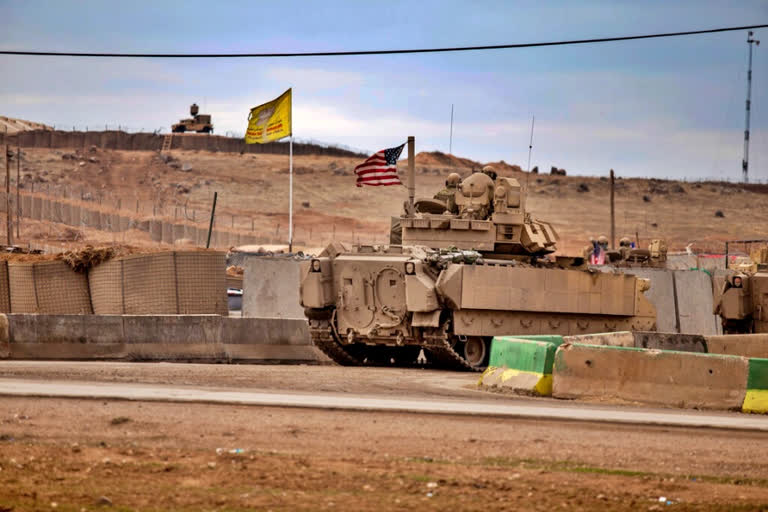Beirut: After weeks of deadly Turkish airstrikes in northern Syria, Kurdish forces and international players are trying to gauge whether Ankara's threats of a ground invasion are serious. Turkish President Recep Tayyip Erdogan has repeatedly warned of a new land incursion to drive Kurdish groups away from the Turkish-Syrian border, following a deadly Nov. 13 bombing in Istanbul. Turkish authorities blamed the attack on the outlawed Kurdistan Workers' Party, or PKK, and on the Syria-based People's Protection Units, or YPG. Both have denied involvement.
On Nov. 20, Ankara launched a barrage of airstrikes, killing dozens, including civilians as well as Kurdish fighters and Syrian government troops. Human Rights Watch has warned that the strikes are exacerbating a humanitarian crisis by disrupting power, fuel and aid. In the most recent development, Russian Deputy Foreign Minister Sergei Vershinin flew to Turkey this week for talks on the situation in Syria.
Here's a look at what various foreign powers and groups embroiled in the Syria conflict stand to gain or lose:
What Turkey wants
Turkey sees the Kurdish forces along its border with Syria as a threat and has launched three major military incursions since 2016, taking control of large swaths of territory.
Erdogan hopes to relocate many of the 3.6 million Syrian refugees in Turkey to northern Syria and has begun building housing units there. The plan could address growing anti-refugee sentiment in Turkey and bolster Erdogan's support ahead of next year's elections, while diluting historically Kurdish-majority areas by resettling non-Kurdish Syrian refugees there.
Erdogan has also touted plans to create a 30-kilometer (19-mile) security corridor in areas currently under Kurdish control. A planned Turkish invasion earlier this year was halted amid opposition by the U.S. and Russia.
The Kurdish response
Kurdish groups are pressing the U.S. and Russia, both of which have military posts in northern Syria, to once again prevent Turkey from carrying out its threats.
The Kurds are worried that West will stand aside this time to appease Ankara in exchange for approval of Sweden and Finland joining NATO. This silence toward Turkey's brutality will encourage Turkey to carry out a ground operation, said Badran Jia Kurd, deputy co-chair of the Autonomous Administration of North and East Syria.
Kurdish groups, which fought against the Islamic State group alongside a U.S.-led coalition and now guard thousands of captured IS fighters and family members, warn that a Turkish escalation would threaten efforts to stamp out the extremist group. In recent weeks, officials from the U.S. and the Kurdish-led Syrian Democratic Forces said they had stopped or scaled back joint patrols against IS because of the airstrikes, although patrols have since resumed.
